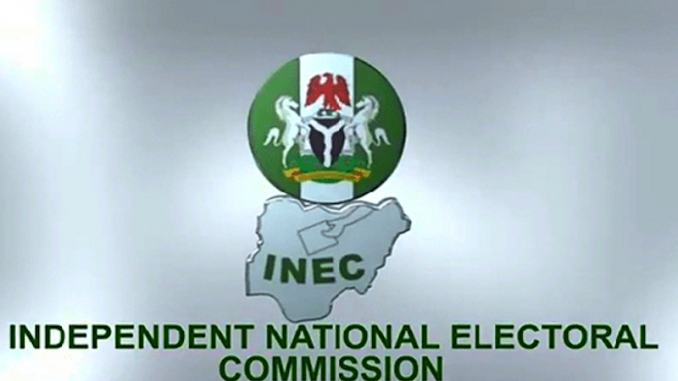
By Emmanuel Oloniruha
The Independent National Electoral Commission (INEC) says it plans to deploy 46,084 staff for the Nov.11 off-cycle governorship election in Bayelsa, Imo and Kogi.
The INEC Chairman, Prof. Mahmood Yakubu said this at the commission’s regular quarterly meeting with Resident Electoral Commissioners (RECs), in Abuja on Friday.
Yakubu also said that 137,934 party agents representing the 18 political parties comprising 130,093 polling and 7,841 collation agents would also be on the field at the poll.
“While we are leaving no stone unturned in other areas of preparation for the governorship elections, the commission plans to deploy a total of 46,084 regular and ad hoc staff for the election.
“We have so far accredited 126 national and international organisations, and currently deploying 11,000 observers for the election.
“Although the portal for media accreditation closes on Tuesday, Oct. 24, we have received applications from 80 media organisations seeking to deploy 1,203 personnel made up of journalists and technical/support staff to report on the elections.
“The 18 political parties participating in the elections are deploying 137,934 agents made up of 130,093 polling and 7,841 collation agents,” he said.
He added: “We are also finalising arrangements for vehicles and boats for land and maritime movement of personnel and materials.”
Yakubu said that such massive deployment required a secured environment which he said was beyond the commission’s immediate responsibility.
Reiterating the commission’s concern about the prevailing insecurity and election-related violence in the three states, Yakubu said that INEC had been reassured of adequate deployment by the security agencies.
“On our part, we will continue to deepen our engagement with the security agencies and more meetings are planned in the next few days.
“Similarly, the commission will hold series of meetings with stakeholders at the national level in addition to ongoing engagements at the state levels,” he said.
The INEC boss expressed confidence that the Bimodal Voter Accreditation System (BVAS) would perform better in the Nov.11 election.
“Last week, we conducted a mock accreditation involving actual voters in designated polling units in the three states; we had two objectives for the exercise.
“Firstly is to test the efficacy of the BVAS for biometric authentication of voters; secondly, to upload the result to the INEC Result Viewing Portal (IReV). Both tests were successful.
“We look forward to improved performance of the BVAS in voter accreditation and result uploading in the forthcoming elections,” he said.
Yakubu said that so far, all non-sensitive materials for the election had been delivered to the three states.
He said that the election would involve 5,409,438 registered voters in 10,510 polling units spread across 649 electoral wards in 56 Local Government Areas (LGAs).
He said that other preparatory activities, including training, were on course, while valuable lessons learnt from the 2023 general election would be used to improve performance in the forthcoming election.
Yakubu also said that the reports on the 2023 general election and the outcome of its review were being finalised. (NAN)



